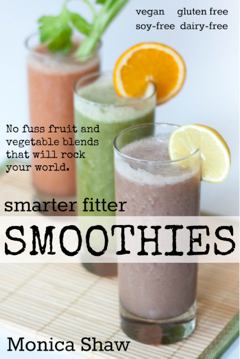
Omega-3 fatty acids are supposed to be the business, right? Since I don’t eat fish, I’ve been supplementing my diet with flax oil, the richest plant source of omega-3s. But after reading the World’s Healthiest Foods’ take on flax oil, I’m not sure that this is the way forward:
Flaxseed oil is a processed food product in which most of the whole, natural food has been eliminated. We treat flax oil like a dietary supplement, and we do not include it in the World’s Healthiest Foods like we do flaxseeds. You can buy high-quality flax oil that includes many of the nutrients contained in the seeds, including some of the fiber. But you cannot find any flax oil that contains the full nutritional value of flaxseeds.
The word “processed” always gets my attention. Michael Pollan of In Defense of Food would say that this is a classic case of “nutritionism”, our modern ideology that deals with food by breaking it down into its constituent parts and trying to decipher what’s important. True, I try to make a point to eat whole, natural foods wherever possible, making the occasional exception for spaghetti (Tim has mastered the arrabiatta sauce as of late). But I eat spaghetti because it tastes good, whereas I eat flax oil to get omega-3’s. Wouldn’t it make more sense to just eat whole flax seeds, and all of the great fiber and nutrients that come with it?
What do flax seeds have that the oil lacks?
Flax seed oil has omega-3 fatty acids and vitamin E. That’s it. Whole flax seeds, however are full of nutrients, including high concentrations of manganese, fiber, magnesium, folate, copper, phosphorus and vitamin B6.
Then why am I not eating more flax seeds?
Honestly, they are a pain in the ass. As WHF agrees, “one problem with flaxseeds, however, involves their chewing and digestion. Flaxseeds are very small and can pass through the body without becoming digested and absorbed.” Basically, our bodies don’t have the enzymes to break through the hard fibrous outer shell of the flax seed. So away they go, nutrients all, literally right down the pooper.
How can I get the benefits of the whole seed?
Flax seeds can be ground or soaked overnight to improve their digestibility. WHF recommends using a coffee grinder; mine do just fine in a blender.
But what do I DO with flax seeds once I’ve ground or soaked them?
It’s true, flax seeds on their own are kind of bland. Here are a few suggestions from me and WHF:
I’m still new to this but I’m sure you guys have some more great ideas. Please share in the comments!



I love my flax….so I havent entirely shifted my allegiance but hath added the CHIA in.
(tomorrow up at the mizfit is a post on a different way Im getting my omega 3’s…great minds huh?)
ID NEVER THOUGHT TO ADD THEM TO MY PROTEIN SHAKE!
thanks!
I will stay tuned for your phatty post… enjoy the shake. 😉
Indeed, ground flax seed contains more nutrients than flax seed oil. The oil is where you get the Omega 3, lignans and multivitamin nutrients while the husk contains the dietary fibers you need. When you take only the oil, then you miss out on the fibers and a lot of other important nutrients. Many users top cold-milled flax sprinkles over pastries, that one you could try. Personally, I use it over smoothies and oatmeal. But if your kind of looking for a little variance, why don’t you try roasted http://www.goldflaxseed.com/site/1411640/product/HNrf-1lb“ rel=”nofollow”>flax seed for a change.
Flax oil is also extremely perishable. The fat turns rancid very quickly, so you need to be sure it’s been constantly refrigerated from the time it’s bottled. I’ve heard one ‘expert’ say that it should be consumed within 6 weeks of pressing.